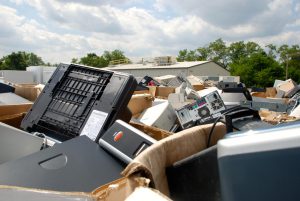Computer Equipment Recycling Programs
When computers and other electronic devices are no longer in use, they must be disposed of properly. These types of items, which are sometimes called e-waste, contain dangerous chemicals that can harm the environment and should not be tossed out with regular trash. Instead, these products can be recycled and turned into useful parts for other electronics, which provides a number of benefits to society and the environment.
Computer recycling is a good way to make sure that your company’s e-waste does not end up in landfills. It also helps to keep important chemicals, such as mercury and cadmium, from contaminating soil and water. This process is similar to the popular trend of upcycling, where people take previously used items and turn them into something new and different. When recycle computer equipment, it can be turned into things such as furniture and other home decor.
In addition to preventing hazardous materials from contaminating the earth, recycling e-waste can help to create jobs. The processing plants that recycle these items need workers to operate them. Consequently, the more people recycle their old computers and other electronic devices, the more jobs will be created in these processing plants. This will also help to reduce the amount of e-waste that is dumped in landfills and other waste sites, which can cause pollution and harm to wildlife.

How Businesses Can Implement Computer Equipment Recycling Programs
Many computer manufacturers have programs in place to help consumers with their e-waste. These programs are often free and simply require that the consumer ship or drop off their old equipment for processing. Some manufacturers may also provide a financial incentive for the consumer, such as paying them based on the value of the components that can be recovered from their old equipment.
There are also several nonprofit organizations that collect and recycle unwanted electronic devices. These groups often have locations in cities and states where people can bring their e-waste for processing. These organizations can also help businesses and other companies develop their own e-waste recycling programs.
While most professional e-waste recycling centers will accept most electronic equipment, there are some items that cannot be recycled. These include older cathode ray tube televisions and computer monitors, which typically contain lead. In addition, certain types of batteries can pose a safety threat if they are discarded incorrectly. These issues are addressed by some e-waste recycling facilities, which will safely dispose of these items.
Some of the parts of a computer that can’t be reused or refurbished are broken down and sold as scrap metals. These parts are then sent back to the manufacturing plant to be repurposed in other products. Other pieces of machinery may be donated to local homeless shelters or other charities that provide services for low-income individuals. These facilities can then use this technology to support their programs and help people overcome addictions, tragedy or other misfortunes. In addition, these machines can be used in education settings to allow students and others to study the latest technologies, including information about computers and other electronics.